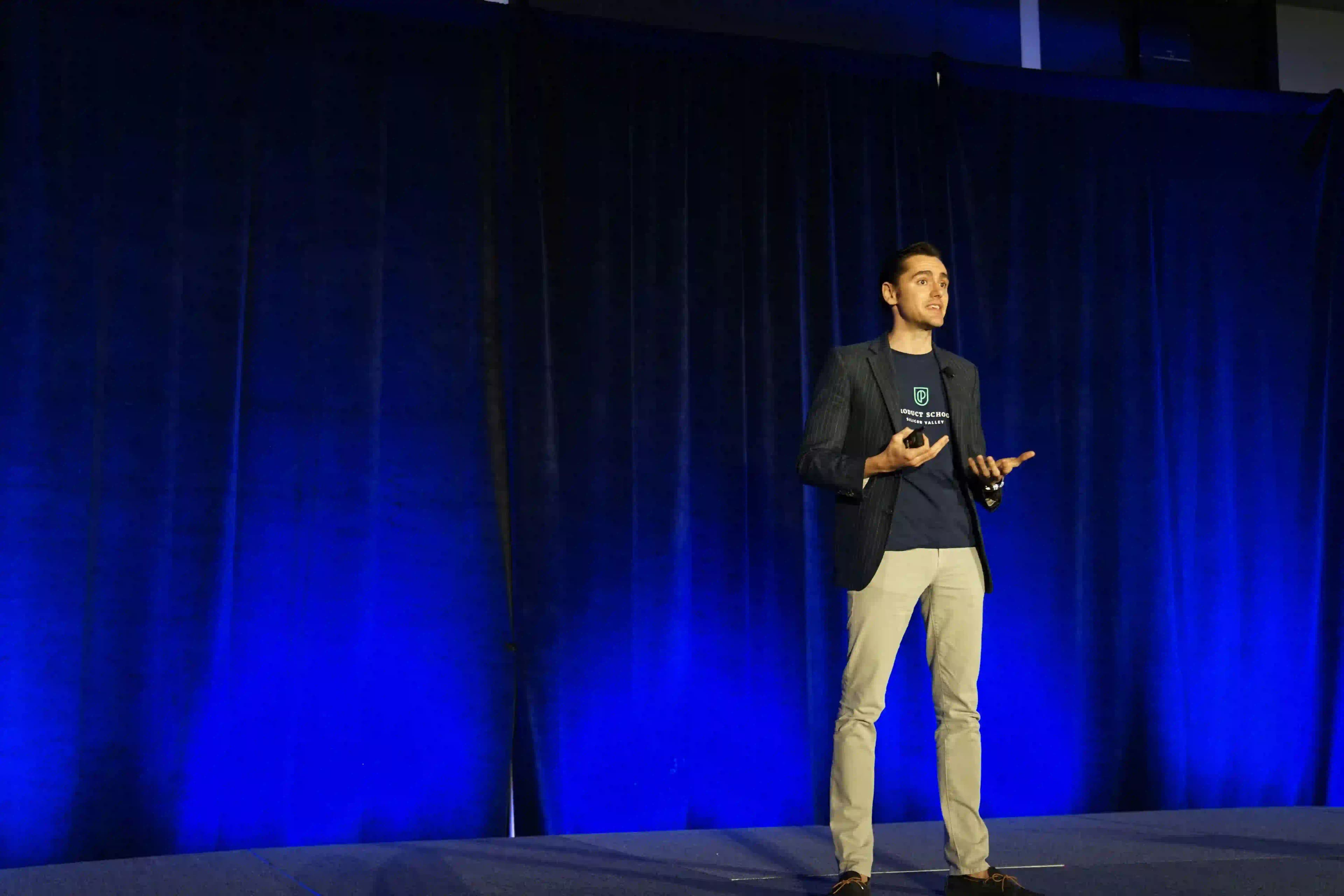
3 Things MBA Applicants Wish They Knew Before Applying
Advertisement
The MBA Application Regrets You Can Avoid
After 16 years of coaching MBA applicants and helping hundreds land spots at top programs, I've noticed some painful patterns. There are things people consistently wish they'd understood earlier, not earth-shattering revelations, but the kind of practical wisdom that actually actually actually changes how you approach the whole process.
1. Test Scores Matter (But Not as Much as You Think)
Here's the thing: GMAT/GRE scores are important, but they're not the only thing that matters. I've seen people with stellar test results get rejected from dream schools, while others with mediocre scores get into elite programs. The truth? Schools look at the whole picture, your essays, recommendations, work experience, and yes, test scores.
The biggest mistake? Letting a "low" score stop you applying somewhere you really want to go. As I always say: The worst they can do is say no.
2. This Isn't Like College Applications
Applying to business school is a part-time jo.b Seriously. I've watched too many applicants burn out because they underestimated the workload. Unlike undergrad applications where you might recycle essays, each MBA program wants something different, unique essays, specific short answers, tailored resumes.
(Side note: This is why I still love admissions coaching after all these years, helping people craft applications teaches them real communication skills.)
The key? Start early. Even if you're still prepping for tests in August, begin drafting essays in June. And for heaven's sake, don't apply to 12 schools just because you're nervous, quality over quantity always wins.
3. Getting In Is Just the Beginning
The hardest part comes after acceptance. There's this dangerous myth that an MBA automatically leads to dream jobs. Reality check: You'll be competing with all the other amazing people who got into your program. Landing that first post-MBA role? That's where the real worrk begins.
The solution? Start career planning now. Network in your target industry. Do informational interviews. Understand what skills you'll need so you're not scrambling during recruiting season. Because honestly? A great MBA with a mediocre post-grad job is worse than no MBA at all.
*Deep breath*
The good news? All of this is manageable if you approach it strategically. The bad news? Well... now you know what most applicants learn too late.
The Three Biggest MBA Application Regrets How to Avoid Them)
After working with hundreds of MBA applicants over the years, certain patterns emerge in what they wish they'd done differently. These aren't just minor oversights – they're fundamental misunderstandings about the application process that can make or break your chances at top programs.
1. Overemphasizing Test Scores
Here's the paradox: GMAT and GRE scores matter tremendously, but they're not everything. We've seen applicants with 780 GMATs get rejected from their dream schools, while others with 650s land spots at M7 programs. The test is a threshold – you need to clear it – but once you do, other factors take precedence.
What most applicants don't realize is that admissions committees look for three-dimensional candidates. Your leadership potential, unique background, and ability to contribute to classroom discussions often outweigh a slightly below-average test score. That said, you should still aim for your personal best – just don't let it become an obsession at the expense of other application components.

2. Underestimating the Application Workload
If you think writing one great essay and copying it across schools will work, prepare for disappointment. Modern MBA applications are custom-built puzzles, with each top program crafting unique questions to rveal different aspects of your candidacy.
| Application Component | Time Investment (Per School) |
|---|---|
| Essays & Short Answers | 20-40 hours |
| School Research | 10-15 hours |
| Networking/Events | 5-10 hours |
| Recommendations Coordination | 5+ hours |
The smart approach? Start early and work concurrently. Even if you're still polishing your test score in August for Round 1 deadlines, begin drafting essays in June. The introspection required for strong applications often reveals gaps in your story that need time to address properly.
3. Focusing Only on Admission (Not What Comes After)
This might sting a bit: Getting into business school is actually the easy part. The real challenge begins when you step onto campus and suddenly find yourself competing against hundreds of equally (or more) qualified peers for limited internship and job opportunities.
The brutal truth about MBA recruiting:
- Campus recruiters invest ~$100k per hire just in the selection process
- You're competing against the same people who aced their applications
- Your first post-MBA role sets your career trajectory for years to come
The savviest applicants use their application year to:
- Conduct informational interviews in target industries
- Identify skill gaps between their profile and dream roles
- Build authentic relationships with alumni at target schools
- Crystallize their career vision beyond vague "I want consulting" statements
The common thread? These regrets all stem from misallocated focus. Successful applicants balance test prep with application strategy while keeping one eye firmly on their post-MBA goals. It's not easy, but neither is getting into a top program – which is exactly why this approach works.
The Three Biggest MBA Application Regrets (And How to Avoid Them)
After years of coaching MBA applicants, I've noticed three recurring themes in what candidates wish they'd known earlier. These aren't just minor oversights - they're fundamental misunderstandings that can make or break your business school journey.
1. The Test Score Trap
Here's the uncomfortable truth: Your GMAT or GRE score matters, but not in the way most applicants think. I've seen people with perfect scores get rejected from every school, while others with mediocre numbers land at top programs. Why? Because admissions committees are looking at the whole package.
The biggest mistake? Believing a low score means you shouldn't apply to dream schools. Rejection costs you nothing, but not applying out of fear costs you everything. I've worked with clients who got into M7 schools with scores well below averages because their overall story was compelling.

2. Underestimating the Applicaiton Marathon
If you think applying to business school is like undergrad applications times five, think again. Each MBA application is essentially a custom-built professional portfolio requiring:
- Unique essays for every single school (no copy-pasting!)
- Deep program research that goes beyond rankings
- Networking efforts that demonstrate genuine interest
- Tight storytelling across all components
The kicker? Most applicants realize this too late after spending 80% of their time on test prep and scrambling through applications at the last minute. A typical competitive applicant needs about 40 quality hours per school - and that's after they've done their homework on what makes each program unique.
The Hidden Challenge: Post-MBA Recruiting
The hardest part isn't getting in - it's getting out with the right job.
There's a dangerous myth that MBA admission equals career success. Reality check: You'll be competing against your brilliant classmates for limited spots at top companies spending six figures per hire on recruitment.
The secret weapon? Start career planning during your application process, not after orientation week:
- Network early: Connect with professionals in your target industry now
- Craft your narrative: Your application story should align with post-MBA goals
- Identify skill gaps: Use pre-MBA time to shore up weaknesses
The students who thrive aren't necessarily those with highest GPAs - they're the ones who entered campus knowing exactly what they wanted and how to get it.
The Three Biggest MBA Application Regrets (And How to Avoid Them)
After worrking with hundreds of MBA applicants over the years, I've noticed some painful patterns in the regrets people express after goig through the process. Here are the three most common - and more importantly, how you can sidestep these pitfalls entirely.
1. Overemphasizing Test Scores

Here's the paradox: test scores matter tremendously, but they're not everything. I've seen applicants with 780 GMATs get rejected from their dream schools, while others with 650s get into multiple top programs. The difference? How they presented the rest of their application.
Yes, you should absolutely aim for your best possible score. But once you've reached your personal ceiling (after 2-3 serious attempts), it's time to shift focus to crafting compelling essays, securing strong recommendations, and building relationships with your target programs.
2. Underestimating the Application Workload
Many applicants make the critical mistake of thinking: "I'll crush the GMAT first, then knock out applications in a few weeks." This approach leads to rushed, mediocre submissions that don't do justice to your potential.
The reality? Each school's application is a unique beast:
- Custom essays that require deep introspection
- Short answers that need precision
- Recommendation letters that demand careful preparation HTL_TAG_279_Campus visits or virtual events to demonstrate interest
The days of copy-pasting essays between applications are long gone. Top programs now craft distinct questions specifically to reveal different dimensions of each candidate. What Harvard wants to know about you differs fundamentally from what Stanford seeks.
3. Focusing Only on Admission (Not What Comes After)TML_TAG_285_
Here's the uncomfortable truth nobody tells you: Getting into business school is actually the easy part. The real challenge comes when you're competing against your brilliant classmates for those coveted post-MBA jobs.
The recruiting process can be brutal because:
- Companies invest $100k+ per hire just in recruitment costs
- You're competing against the top 5% of professionals worldwide
- The wrong first job can dearil your entire career trajectory
The solution? Start career planning now, as you're applying:
- Network strategically: Begin informational interviews in your target industry
- Identify skill gaps: What abilities do you need to develop before recruiting?
- Craft your narrative: How does an MBA fit into your long-term goals?
The most successful applicants treat the entire process as preparation for their future careers - not just as a hurdle to clear for admission.
Final Thoughts: What Every MBA Applicant Should Keep in Mind
Applying to business school is a transformative journey, but it’s easy to get caught up in misconceptions that can lead to regrets later. Here are the key takeaways to remember:
1. The Bigger Picture Beyond Test Scores
While a strong GMAT or GRE score matters, it’s not the sole deciding factor. Schools evaluate your entire profile, leadership, essays, recommendations, and career vision. Don’t let a less-than-perfect score discourage you from applying to your dream program.
2. The Application Process Demands Time and Strategy
Crafting compelling applications isn’t something you can rush. Each school has unique requirements, and cutting corners will show. Start early, prioritize quality over quantity, and treat every application, even "safety" schools, with the attention it deserves.
3. Your Post-MBA Career Starts Now
Admission is just the beginning. Landing the right job after graduation requires foresight, networking, researching roles, and refining your career goals before you step on campus. The competition is fierce, but preparation sets you apart.
The Bottom Line
Your MBA journey is what you make it. Approach appliccations strategically, invest time in self-reflection, and keep your long-term goals in focus. Whether you're just starting or polishing your essays, remember: clarity and effort now will pay off exponentially later.
The road to an MBA isn’t easy, but with the right mindset, it’s one of the most rewarding adventures you’ll undertake.
Advertisement
You may also like
Advertisement









